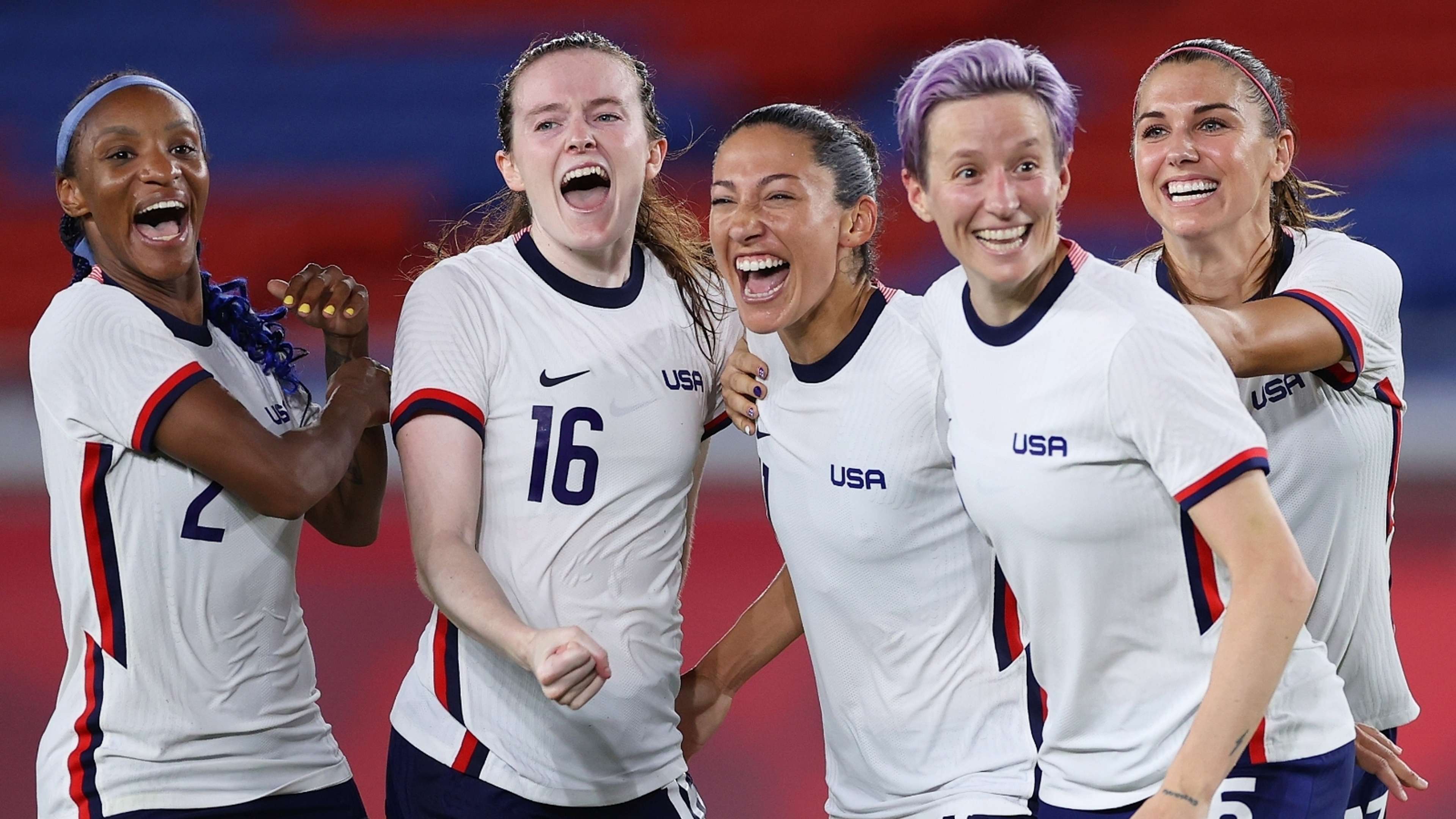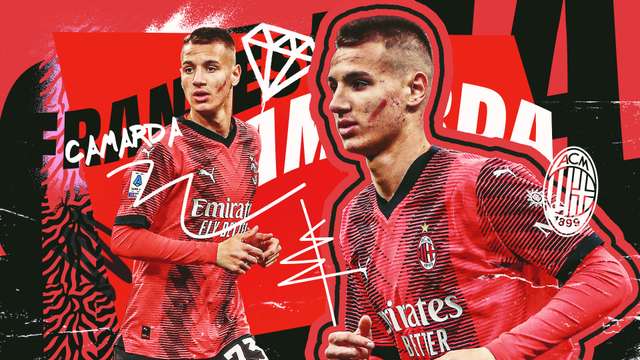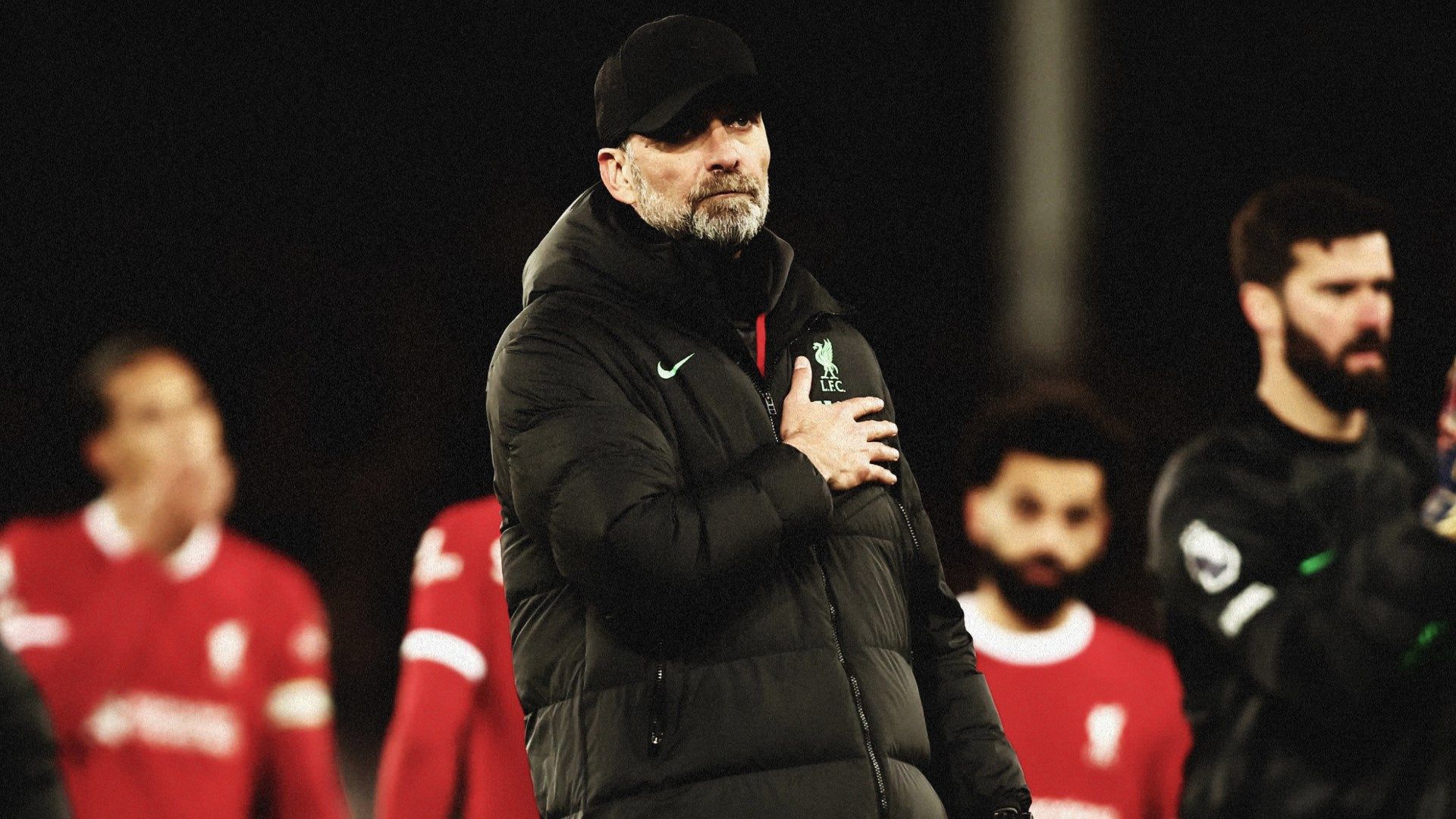Since the U.S. women's national team's inception in the 1980s, each subsequent generation of players has had a remit beyond any on-field objectives: leave things better than they found them.
As important as winning gold medals and World Cups has been, moving the ball forward on compensation, benefits, working conditions and equitable treatment has been equally significant.
In that sense, Tuesday’s news that the USWNT and U.S. Soccer had reached a $24 million (£18m) settlement in their equal pay lawsuit (contingent on a new collective bargaining agreement) was just another milestone in a long, drawn-out struggle that will continue long after each member of the current team has kicked their last ball in anger.
It’s only fitting it required a player involved in that struggle in the 1990s to help broker an agreement between two warring factions this time around.
The only difference this time around was that she was on the opposite side.
“This is just one step towards rebuilding our relationship with the women's team,” U.S. Soccer president Cindy Parlow Cone said on a conference call Tuesday.
“This is a great accomplishment. I think everyone should be excited about today.”
Parlow Cone was the youngest player on the 1996 Olympic squad, which saw nine of its top players hold out and threaten to boycott the Olympics if they didn’t receive improved contracts.
U.S. Soccer relented, and the USWNT won gold in the first ever Olympic women’s soccer tournament.
Parlow Cone was also on the mythical 1999 World Cup team, which won the tournament on home soil and then threatened to embark on its own victory tour if the federation didn’t improve their contract terms.
Once again, U.S. Soccer met the players’ demands, and the USWNT participated in the federation-sanctioned victory tour.
“From its inception, we've had women fight for better pay and better working conditions and to be treated more fairly and with more respect, and every generation has taken on that fight to close the gap,” USWNT captain Becky Sauerbrunn said.
Parlow Cone entered the picture when the relationship between U.S. Soccer and the USWNT was at its lowest point, with federation president Carlos Cordeiro forced to resign in disgrace after overseeing a legal strategy that questioned the value of his players based on their gender.
“I'll be the first to admit the federation has made mistakes in the past,” said Parlow Cone, who was U.S. Soccer vice-president during Cordeiro’s time at the helm.
"And, as a former player, I definitely understand the frustration of being treated that way and of dealing with my predecessor."
Parlow Cone’s call-out of Cordeiro was strategically timed, with the two set to go head-to-head for the U.S. Soccer presidency next weekend.
Cordeiro is hoping to regain his former position with the backing of several factions of the electorate, which certainly will not include USWNT players.
In hindsight, it’s clear that Parlow Cone’s elevation into the presidency was the vital moment in the road to a lawsuit settlement, and USWNT players have no interest in returning to the former status quo.
"Cindy, this is a thank you to you for your leadership," Sauerbrunn said. "You became president at a time when I think our relationship with the federation was at its worst.
"You opened up dialogue with the players and you did exactly what you said you were going to do."
Megan Rapinoe was even more explicit, recalling an embarrassing moment when Cordeiro mispronounced her name during a celebration of their 2019 World Cup win.
"I think Carlos does know my last name but he's certainly not getting my vote," the forward said.
Rapinoe, Sauerbrunn and several of their teammates who were most prominent in the current struggle are in the twilight of their national team careers.
The torch is set to be passed and the younger generation appears ready to pick up where their predecessors left off.
Sophia Smith, who at 21 looks set to be a USWNT standard-bearer for years to come, posted a note of gratitude on Twitter to players who fought “not only for themselves but for the next generation and every single one after that.”
“That message was one of the best,” Sauerbrunn said of Smith’s tweet. “To know that we the players have built a culture that has instilled a sense of value and fight I think is a legacy that we're truly proud to leave behind.”
“For the future generations... to have them understand not just that things are going to be better, but it's their responsibility to make them better,” Rapinoe added.
“Hopefully, we've left them with a much bigger toolbox and a better roadmap for doing that.”


.jpg?auto=webp&format=pjpg&width=640&quality=60)

.jpg?auto=webp&format=pjpg&width=640&quality=60)